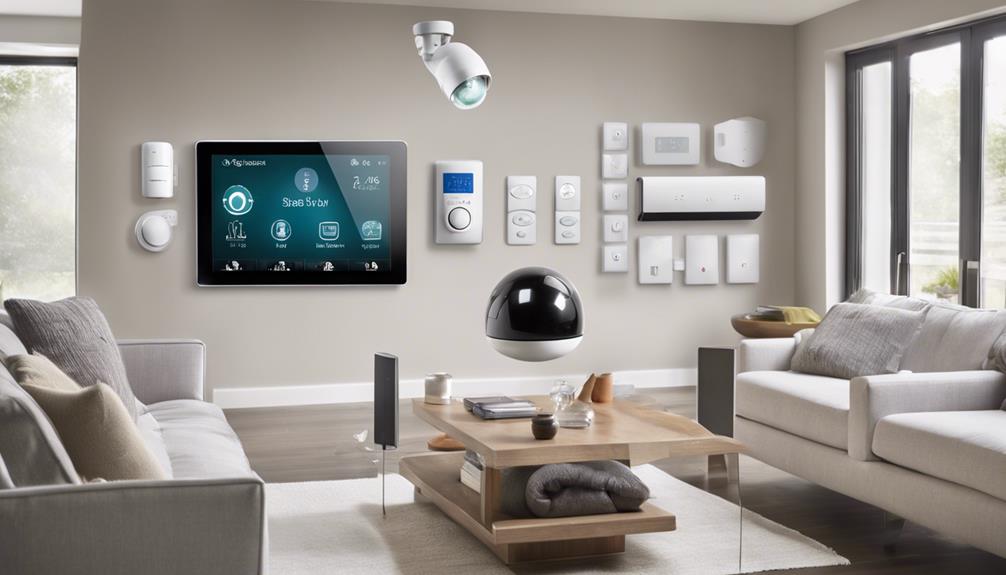When deciding on the best home alarm for you, weigh your security needs, budget, and desire for automation. Monitored systems offer professional surveillance with quick emergency alerts and smart tech integration, though they come with a yearly fee. DIY wireless kits provide easy setup and mobile monitoring, perfect for those looking for affordability and flexibility. Professionally installed alarms guarantee ideal placement and 24/7 surveillance, with the benefit of hardwired components for fewer signal interferences. Smart home features like automation and voice control create a seamless security experience. Unmonitored options are cost-effective but rely on personal response. Choose wisely for your peace of mind.
Key Takeaways
- Monitored systems offer 24/7 surveillance and professional response, ideal for high-security needs.
- DIY wireless systems provide affordability, easy installation, and mobile app monitoring for basic security.
- Professionally installed alarms ensure optimal placement, hardwired components, and video surveillance for robust security.
- Smart home integration features enhance security with automation, voice control, and geofencing for convenience.
- Unmonitored options are budget-friendly, relying on local alarms, and ideal for low-risk areas with personal response capabilities.
Monitored Home Security Systems
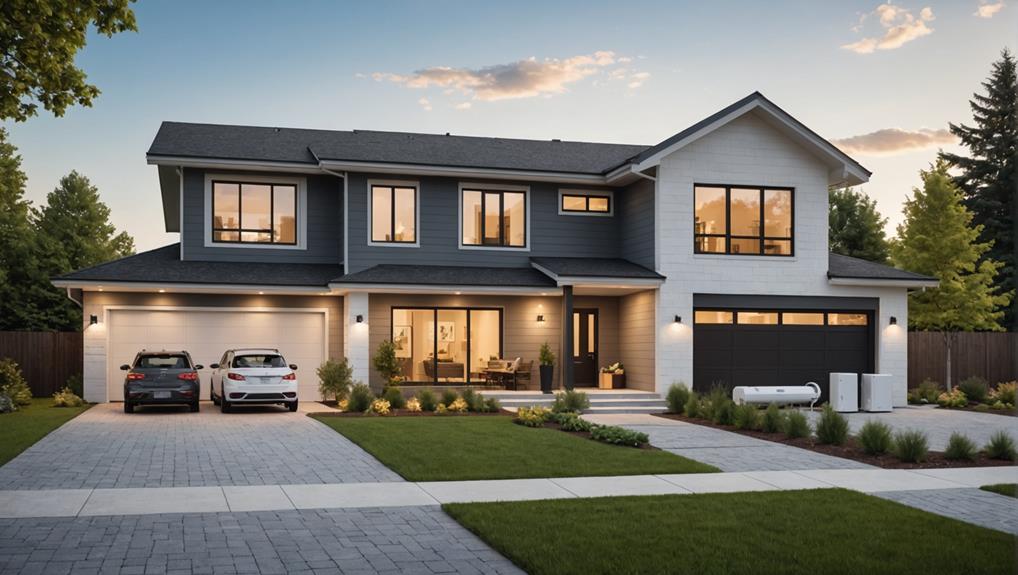
When it comes to safeguarding your home, monitored home security systems offer unparalleled peace of mind.
With 24/7 surveillance by professional monitoring services, these systems guarantee immediate alerts and responses to emergencies. For an average yearly fee of around $100, you can rest easy knowing trained professionals are watching over your property.
This level of security contributes greatly to peace of mind and crime prevention, making it a worthwhile investment for any homeowner. In the event of an alarm being triggered, monitored systems can swiftly alert local authorities, considerably reducing response times compared to unmonitored systems.
Studies show that homes with monitored security systems are 300% less likely to be burglarized, highlighting the effectiveness of these systems in deterring crime.
Additionally, many monitored systems integrate with smart home technology, allowing for enhanced automation and remote control through smartphone apps.
DIY Wireless Systems
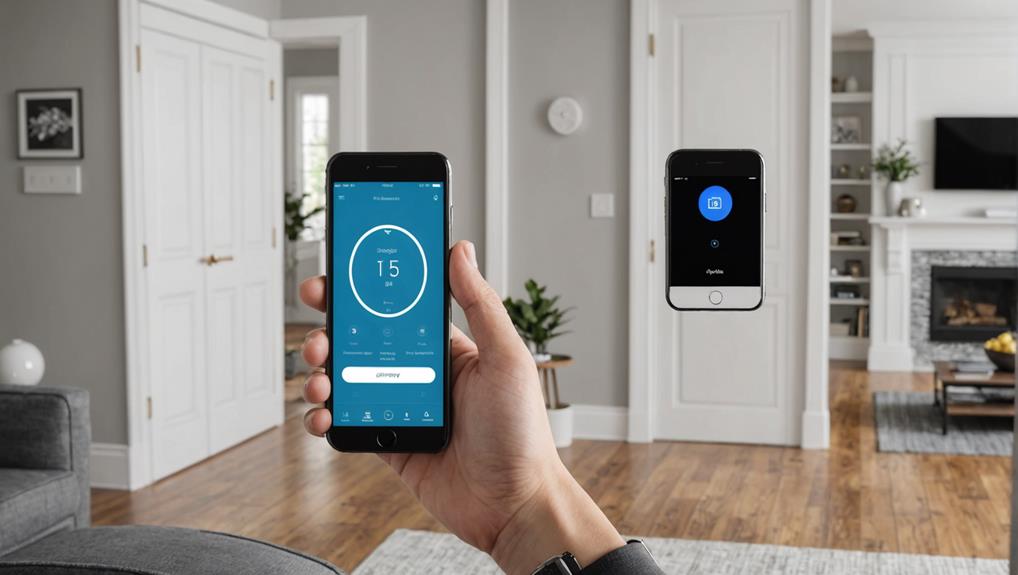
Considering enhancing your home security with a DIY wireless system? DIY wireless systems are a popular choice among homeowners looking to bolster their security without breaking the bank.
These types of security alarms are easy to install, often coming with starter kits that include crucial components like base stations, sensors, and cameras for customization based on your needs. They offer real-time monitoring through mobile apps, sending alerts directly to your smartphone for increased accessibility and control.
One of the main advantages of DIY wireless systems is their affordability, with many options priced under $200. They provide flexibility in placement and scalability, allowing you to expand your system as needed.
However, it's important to note that these systems may require regular battery maintenance and can be prone to signal interference if not properly secured.
Despite these considerations, DIY wireless systems offer a cost-effective and convenient solution for enhancing your home security.
Professionally Installed Alarms
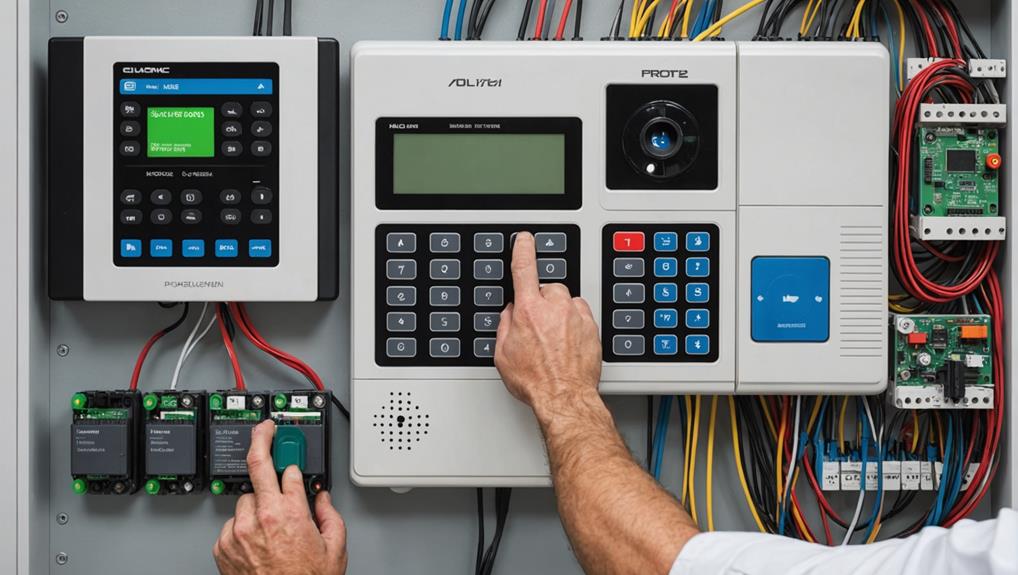
For enhanced security with professional expertise, opting for a professionally installed alarm system can provide peace of mind and complete protection for your home.
Professionally installed alarm systems involve trained technicians ensuring ideal placement and functionality, enhancing overall security effectiveness. These systems often include 24/7 surveillance by security experts for immediate emergency response.
With hardwired components, they offer added reliability and stability, reducing the risk of signal interference common in wireless systems. Long-term contracts, typically 2 to 5 years, provide stable monthly fees and guaranteed access to professional support.
Additionally, these systems may feature video surveillance, environmental sensors, and smart home integration for a more tailored and robust security solution.
Smart Home Integration Features
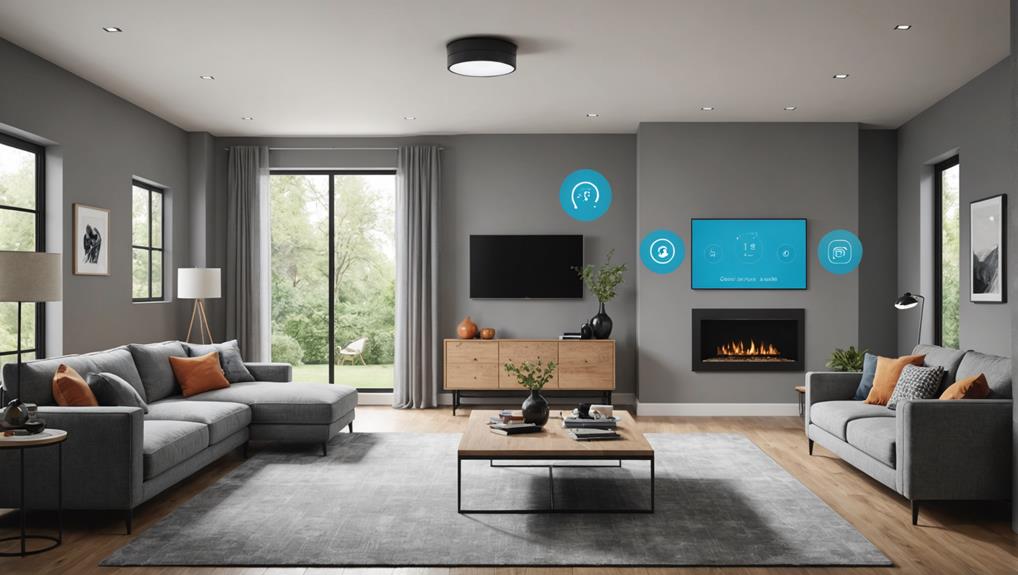
To maximize the functionality of your home security system, integrating smart home features can offer a seamless and interconnected experience.
Here's how smart home integration features can enhance your security setup:
– Unified Home Automation: Connect your security system with smart devices like locks, lights, and thermostats for a cohesive home automation ecosystem.
Integration with smart home technology enhances both security and convenience by allowing various devices to work together.
- Voice Control: Enjoy hands-free control by integrating with voice assistants like Amazon Alexa and Google Assistant for easy arming and disarming.
- Geofencing: Automatically arm or disarm your system based on your location, adding convenience and security.
- Mobile App Management: Receive real-time alerts and monitor your security system from anywhere through user-friendly mobile apps.
- Enhanced Security: Automate actions like turning on lights upon motion detection or remotely locking doors for an overall improved security experience.
These automated actions can considerably reduce the risk of potential security breaches.
Unmonitored Security Options
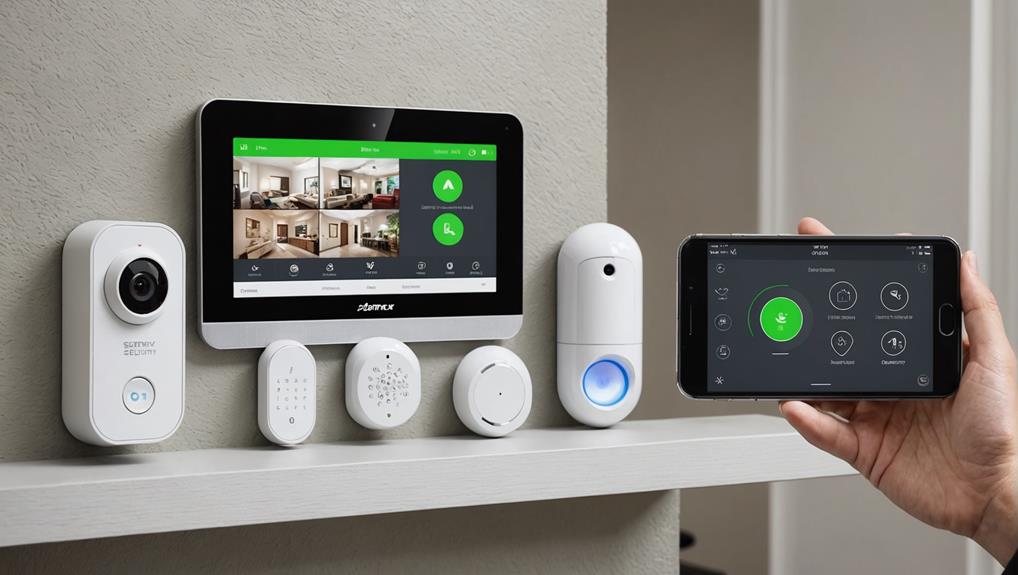
Looking into unmonitored security options gives homeowners the flexibility to manage their own security setups without the need for professional oversight.
These systems offer a budget-friendly alternative, with lower initial costs and no monthly fees. Unmonitored security options rely on local alarms and personal response to incidents, utilizing loud sirens or flashing lights to alert property owners of breaches.
Many homeowners are turning to affordable security devices to enhance their unmonitored systems without breaking the bank. While they empower homeowners with control over their security measures and customizable settings, quick action is vital when responding to alarms. This may result in slower reaction times compared to monitored services.
Unmonitored systems are ideal for low-risk areas or remote locations where professional monitoring may not be necessary. By choosing unmonitored security options, homeowners can take charge of their security needs while enjoying the cost-effective benefits these systems provide.
Frequently Asked Questions
What Is the Best Type of Alarm System?
When choosing an alarm system, consider your needs.
Wired systems offer reliability but can be costly to modify. Wireless systems provide flexibility but require battery maintenance.
Monitored alarms offer professional oversight for peace of mind, while unmonitored ones rely on your response.
Smart systems integrate with other devices for enhanced security.
Ultimately, the best type depends on your priorities and lifestyle.
How Do I Choose a Home Alarm System?
To choose a home alarm system, assess your security needs based on property size, location, and vulnerabilities.
Compare installation and monitoring costs for monitored and unmonitored systems.
Evaluate features like remote access and environmental sensors.
Check customer reviews for reliability insights.
Consult security experts for personalized advice.
What Is the Best Do It Yourself Home Security System?
When looking for the best DIY home security system, consider systems like SimpliSafe or Ring for easy installation and cost-effectiveness.
These systems offer customizable components, self-monitoring capabilities through smartphone apps, and optional professional monitoring.
With starter kits under $200 and the ability to expand with extra sensors and cameras, DIY systems cater to your specific security needs.
Homeowners prefer DIY systems for their flexibility, affordability, and contract-free options.
What Are the Three Main Types of Alarms?
In the domain of home security, the three main types of alarms you should be aware of are intrusion alarms, fire alarms, and environmental alarms.
These systems are designed to detect specific threats like unauthorized access, fires, and environmental hazards such as carbon monoxide leaks.
Knowing the unique functions of each alarm type can help you make informed decisions when it comes to safeguarding your home and loved ones.
Conclusion
In summary, when choosing a home alarm system, consider your budget, level of technical expertise, and desired features. Monitored systems offer continuous monitoring for peace of mind, DIY wireless systems are easy to install and customizable, professionally installed alarms guarantee proper setup and maintenance, smart home integration adds convenience and control, and unmonitored options may be cost-effective but require more self-monitoring. Choose the best option that fits your needs and lifestyle for maximum home security.

